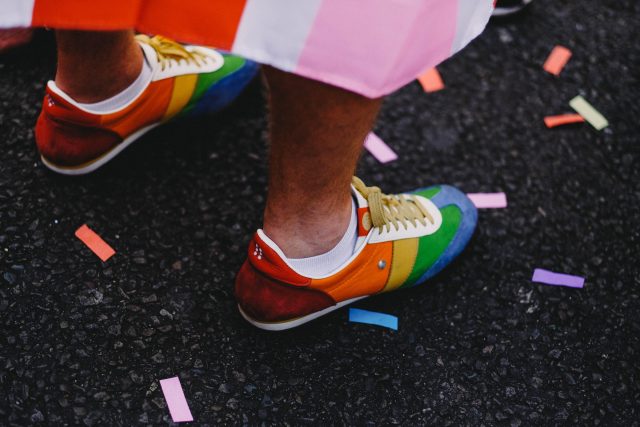Allyship
By: Michael Toohey, Psy.D. | June 19, 2020

Our country is in a state of unrest, as protesters take to the streets in support of racial equality. As we watch events unfolding on the news, we feel anxious, stressed, afraid, and for some…determined: determined to make things better for people of color. Many of us, however, are unsure what to do or where to start. This can leave us feeling helpless, restless, and speechless, especially as COVID-19 limits our ability to congregate.
In times as difficult as these, we must balance staying safe from COVID-19 while still acting on our values for racial equality. Many of us want to be a part of the solution but can feel overwhelmed about how to get started.
Melanie McFarland, a TV critic for Slate.com, and who is Black, created a primer for anyone who wants to positively contribute to the movement for racial equality. Below are her suggestions of what to do and what not to do, paraphrased below:
Do say something.
Please don’t be silent right now. Don’t be the person in the room who is moved by the effort but too afraid to say something. Saying nothing further silences marginalized voices.
Don’t solely rely on a meme or a hashtag to express your feelings.
Activism doesn’t begin and end with a hashtag. This is performative allyship, and does not help the cause. Use your own words to meaningfully contribute to the conversation about racial injustice.
Do reach out to the people of color in your life to let them know that you’re thinking about them.
This can be as simple as sending a text or direct message on social media. Something as simple as, “I see you,” or “Just know that I’m thinking about you” is appropriate. Don’t expect a response or be offended if they don’t reply right away, if at all. Many of the same rules of etiquette around grieving apply in this case.
Don’t place the burden of your racial awareness and education on your friends of color.
This seems counterintuitive, especially if you have friends who are people of color. It seems natural to turn to a trusted confidante who has a personal, visceral experience with racism for answers. This is precisely why you should not do this. As horrified as you are at watching footage of protests turning violent and police brutality, realize that your friends of color are probably more exhausted and traumatized than you are.
Do use your privilege to make a difference.
Use your voice as a tool of empathy, support, and healing for people of color, especially if you are in a leadership role. If you are a business owner, take steps to create a workplace culture of inclusion where people of all races feel truly welcome.
Don’t virtue signal.
A lot of people are diving into reading books about systemic racism in America. If you are going to do the reading, do the work that comes with it afterward.
Don’t keep sharing viral recordings of people of color being brutalized by the cops – especially with people of color.
Do not play a role in re-opening wounds. If your friends want to see these videos, they can find them on their own.
Do commit to doing the right thing, now and in the future.
When the protests fade out of the news cycle, it is crucial to continue contributing to efforts for racial equality. The more people who pledge to do their part to make the world a better place, the better off we will all be. Do something, and don’t ask Black people to do it for you.
I’m going to add one more thing to Ms. McFarland’s guidelines:
Do participate in ‘the smallest acts.’
Donating $1 to a charity or agency that supports the cause against racism in our country may not sound like much, but when 10,000 people do it, it adds up.
During chaotic times, it is natural to feel overwhelmed, helpless, and confused. We want to do something but don’t know where to start. Following these suggestions will help you focus on what is within your power and control and empower you to do something and make a difference.
If you have considered therapy, now is an ideal time for introspection and growth. We all have a lot to learn and this starts with ourselves. Therapy is a safe place to process trauma, develop clarity over what is important to you, and find purpose. During COVID-19, Therapy Changes is offering teletherapy. Contact your San Diego Psychologist at Therapy Changes to learn more and schedule an appointment.



